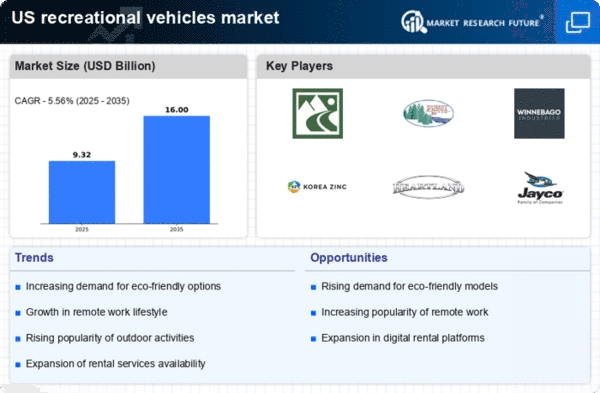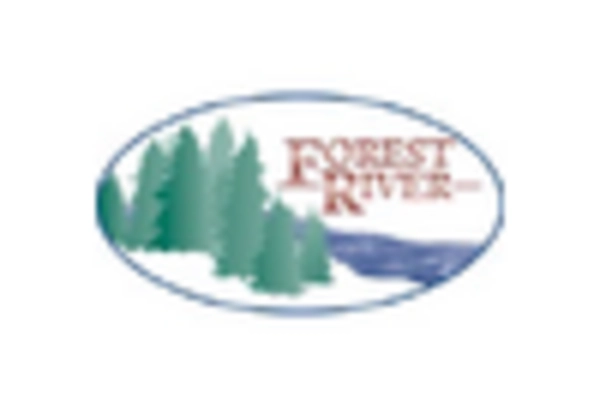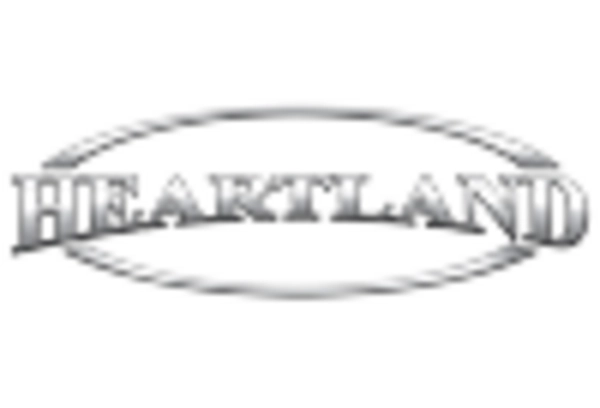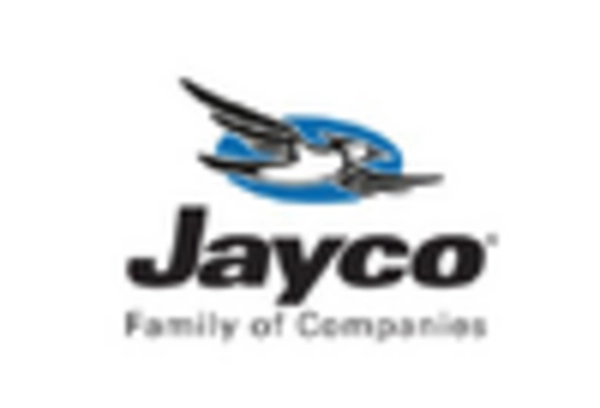Technological Advancements in RV Features
The integration of advanced technology into recreational vehicles has become a pivotal driver for the market. Innovations such as smart home features, enhanced safety systems, and improved fuel efficiency are appealing to consumers. The recreational vehicles market is witnessing a shift towards electric and hybrid models, which not only reduce environmental impact but also offer cost savings in fuel. Recent statistics indicate that nearly 30% of new RV buyers prioritize technological features in their purchasing decisions. This trend suggests that manufacturers who invest in cutting-edge technology are likely to capture a larger share of the market, as consumers increasingly seek modern conveniences and sustainability in their recreational vehicles.
Increased Outdoor Recreation Participation
The recreational vehicles market experiences a notable boost due to the rising interest in outdoor activities among the population. As more individuals seek to escape urban environments, the demand for recreational vehicles has surged. Recent data indicates that approximately 50% of Americans engage in outdoor activities, which has led to a corresponding increase in RV sales. This trend is particularly pronounced among younger demographics, who prioritize experiences over material possessions. The recreational vehicles market benefits from this shift, as families and individuals invest in RVs to facilitate camping, road trips, and other outdoor adventures. The appeal of RVs lies in their ability to provide comfort and convenience while exploring nature, thus driving growth in the market.
Growing Popularity of Remote Work and Travel
The rise of remote work has transformed the way individuals approach travel and leisure, significantly impacting the recreational vehicles market. As more professionals embrace flexible work arrangements, the concept of 'workation' has gained traction, leading to increased RV usage. Data indicates that approximately 20% of remote workers are opting for RVs as their mobile office, allowing them to combine work and travel seamlessly. This trend presents a unique opportunity for the recreational vehicles market, as it caters to a demographic that values mobility and adventure. The ability to work from various locations while enjoying the comforts of home in an RV is likely to drive sustained interest and investment in the market.
Increased Focus on Family Bonding Activities
The recreational vehicles market is significantly influenced by the growing emphasis on family bonding and shared experiences. As families seek ways to reconnect and spend quality time together, RV travel has emerged as a popular solution. Recent surveys indicate that over 60% of RV owners cite family time as a primary motivation for their purchase. This trend highlights the recreational vehicles market's role in facilitating family-oriented activities, such as camping trips and road adventures. The ability to create lasting memories while exploring new destinations resonates with consumers, thereby driving demand for RVs. As families prioritize experiences over material goods, the market is likely to see continued growth in this segment.
Economic Recovery and Disposable Income Growth
The economic landscape in the United States has shown signs of recovery, contributing positively to the recreational vehicles market. As disposable income levels rise, consumers are more inclined to invest in leisure activities, including the purchase of recreational vehicles. Data suggests that household disposable income has increased by approximately 5% over the past year, allowing families to allocate funds towards travel and outdoor experiences. This trend is particularly relevant for the recreational vehicles market, as consumers view RVs as a means to enhance their quality of life. The ability to travel affordably and comfortably has made RV ownership increasingly attractive, thereby stimulating demand and encouraging manufacturers to innovate and expand their offerings.
















